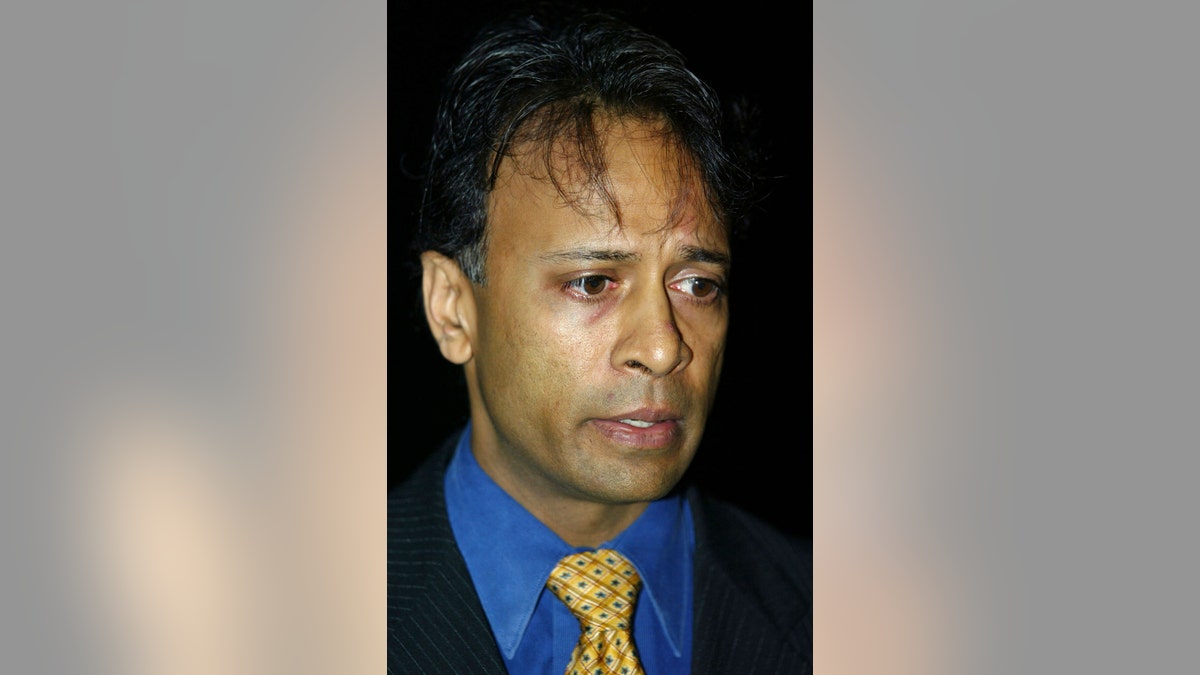
Aileen Wuornos is the subject of a new documentary on Oxygen. (AP)
Infamously known as America’s first female serial killer Aileen Wuornos captivated the nation when she confessed to murdering several men in central Florida between 1989 and 1990. While the circumstances of the crimes that led to her arrest are well-tread territory, a new documentary seeks to shine a light on the subsequent trial in an effort to determine whether the notorious killer got a fair shot within the justice system.
Wuornos, a self-described “highway prostitute” rose to infamy when she was arrested for killing seven of her clients. She confessed to her crimes, arguing that they were in self-defense. This prompted the public to see her as a controversial folk figure. Wuornos was even the subject of the movie “Monster,” for which actress Charlize Theron won an academy award for best actress.
“Snapped: Notorious - Aileen Wuornos” debuts on Oxygen on Sunday.
In it, a myriad of experts on the case say the media attention surrounding her crimes made it difficult for the trial to play out in a fair manner. The documentary also explores the controversial time in 2002 when Wuornos waived her appeals rights and requested to speed up her own execution, calling her mental competency into question.
Perhaps none of the experts had more first-hand experience with Wuornos than Raag Singhal, who was her final appeals attorney.

Reuters (Raag Singhal)
Singhal said in the documentary that Wuornos' final moments on October 9, 2002 impacted him.
“It was a difficult day because, no matter what, she wanted to die.”
Singhal was brought onto the case earlier in 2002, after Wuornos had already been sentenced to death. In a recent interview, Singhal told us how he entered the scene to determine if some complaints Wuornos was making about the prison she was in were true.
Before her eventual execution, Wuornos claimed that the guards were mistreating her, going as far as to accuse them of tampering with her food. Singhal, a seasoned criminal defense lawyer, has seen this kind of behavior before, but usually those who want a prison transfer or to delay an execution. Wuornos, however, was unique in that she wanted to die.

AP (Aileen Wuornos)
“If her complaints were valid, if something could be proven, then there’s a real issue with the prison system,” Singhal, now a circuit court judge in Broward County, Fla., told Fox News. “If the complaints weren’t valid, then there’s a real issue with her mental state. Either way, something must be done.”
Ultimately, Singhal was unable to substantiate Wuornos’ claims about her stay in prison. As a result, he had to seriously entertain the notion that she was not mentally fit to call for her own execution or waive her appellate rights.
”I think she had a whole host of mental issues,” Singhal said. “If you were to kind of look at the totality of the circumstances, her complaints, her behavior, some of the things that she would do… She was someone who, in my view, was going in and out of competency, which is somewhat of a normal thing. When we talk about competency in the criminal context, we say it’s something that waxes and wanes. You can have someone who is confident on one day, then you meet them three days later and they’re not. I have no doubt that she had entire periods where she was lucid and could converse. There were times I met with her when I had no issues with her, then there were times I met with her and she clearly had mental issues.”
As an example, Singhal recalls Wuornos would occasionally laugh uncontrollably for no real reason in meetings with him. But she was the same woman who, in her letters to the Florida Supreme Court, was capable of a level of advanced penmanship.
Singhal asked former Florida Governor Jeb Bush for a stay of execution noting that society has a duty to answer all questions of mental competency prior to the carrying out of the death penalty. Bush agreed and granted the stay, but it did not last very long after the then-governor asked three different doctors to check Wuornos for mental competency. All three found her mentally fit to make the choice she was making. To Singhal, this was a clear example of her waxing and waning periods of competence.
“She was definitely someone who had good days and bad days, and rarely were the two consecutive.”
The new documentary asks the viewer to question whether or not Wuornos received a fair trial. By the time Singhal joined the case, she had already been sentenced to execution. However, to this day he wonders if Wuornos’ case was handled the way another of its kind would be. Specifically, he compares her sentence to a fellow infamous Florida-based serial killer Ted Bundy.
“What's’ interesting in the Wuornos case, and it’s a highly unusual case, is if you were to talk to the public and say ‘This is a serial killer who was executed,’ I don’t think anyone would lose sleep over it. The things the public typically looks at are whether they have confidence in the defendant's guilt and whether they got due process. The third thing is whether the defendant was treated consistently with those who acted similarly,” he said. “It’s a strange concept when you’re talking about those who acted similarly and you’re talking about a serial killer.
“But, when you think about the fact that someone like Ted Bundy was offered life in prison while Aileen Wuornos was someone where death seemed to be really all that was ever on the table, I think there’s a lot of things that come into play that make it seem like the level of fairness was a little bit different for her.”













































